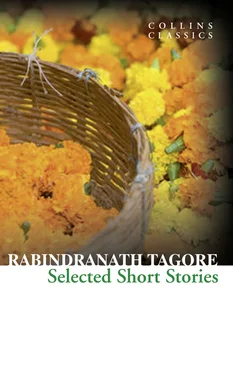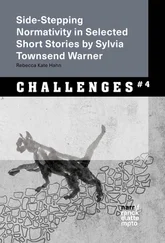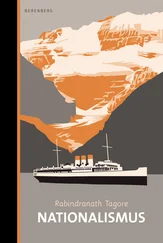In truth, both writers offered an unlikely overlap in literary approach and content, as if they were mirrors reflecting the same influences, but with slightly different perspectives. In many respects Tagore may be seen as the wiser and more intelligent of the two, for he was drawn to writing his own poetry from an early age and was far more open-minded and accommodating of disparate cultural influences. Kipling used writing as a form of escapism, so that it became a place to hide and express his emotions, having suffered a rather unfortunate childhood. The fundamental difference was that Tagore intellectualised the human condition and essentially put himself within the characters so that they were imbued with empathy and sympathy. Kipling lacked the capacity to do this, so that his characters are more stereotyped and lack the complexity observed in real people.
Of course, Tagore was also much more than a writer. He was a talented poet, playwright, artist and songwriter. He applied himself on the basis that he was first and foremost a creative soul, so that this core could be tasked with any medium and achieve success. His intellectual curiosity undoubtedly assisted in this end, too, because it provided Tagore with an intimate understanding of the medium and themes upon which to fashion the creative process. Then, there was the simple willingness to try. So many people prevent themselves from being creative because they perpetuate a lack of self-belief borne on their fear of failure. They fail to realise that creative success actually emerges from the process of failure. In other words, we hone our skills by learning from our mistakes, so that every new attempt takes us closer to our objective. Tagore possessed that innate quality that might be described as enjoyment of the process. By not caring about the outcome, he freed his body and mind from fear and subsequently produced consistent results.
Aside from his creative endeavours, Tagore was also a humanitarian and spokesman for the common man. Perhaps his greatest moment came when he renounced his British knighthood in 1919 in indignation at a massacre of Indian men, women and children that occurred in the city of Amritsar. A British officer had feared an insurrection due to the increasing movement against the colonial regime. He ordered his men to fire indiscriminately on a crowd of Indians who had met in the public garden. Several hundred died in the incident, which became known as the Jallianwala Bagh Massacre. Tagore was so ashamed by his official association with the British that he returned his knighthood in protest. By doing so, he rendered himself ordinary again, so that he could stand alongside the victims who had evidently been regarded as so insignificant that their lives had no perceived value to the British. It was about as big a statement against the British mindset as anyone could make, and it only served to elevate Tagore’s reputation as a man of the people. He had won the moral high ground, which would eventually result in India’s independence in 1947.
Of course, he would not have been in a position to make this statement had he not had his creative successes in the first place, so the two went hand-in-hand. The British had awarded Tagore the knighthood as a move to show that they were able to respect the native Indian, well aware of increasing unrest at their colonial presence. This backfired, though, as they had inadvertently given Tagore the means to symbolically demonstrate the national feeling towards the British. It was a classic case of having been hoisted by one’s own petard, as Shakespeare so eloquently put it.
As Tagore’s writings were centred on the cosmology of the Indian race, he became a personification of India – a kind of spiritual envoy. When he died, at the age of 80, his reputation was such that the date of his death is still mourned to this day. It seemed only right that two of his songs should be used as the national anthems for India and Bangladesh, as lasting reminders of his influence.
CONTENTS
Title Page SELECTED SHORT STORIES Rabindranath Tagore
History of Collins
Life & Times
The Hungry Stones
The Cabuliwallah
The Home-Coming
Once there was a King
The Child’s Return
Master Mashai
Subha
The Postmaster
The Castaway
The Son of Rashmani
The Babus of Nayanjore
Classic Literature: Words and Phrases adapted from the Collins English Dictionary
Copyright
About the Publisher
My kinsman and myself were returning to Calcutta from our Puja trip when we met the man in a train. From his dress and bearing we took him at first for an up-country Mahomedan, but we were puzzled as we heard him talk. He discoursed upon all subjects so confidently that you might think the Disposer of All Things consulted him at all times in all that He did. Hitherto we had been perfectly happy, as we did not know that secret and unheard-of forces were at work, that the Russians had advanced close to us, that the English had deep and secret policies, that confusion among the native chiefs had come to a head. But our newly-acquired friend said with a sly smile: “There happen more things in heaven and earth, Horatio, than are reported in your newspapers.” As we had never stirred out of our homes before, the demeanour of the man struck us dumb with wonder. Be the topic ever so trivial, he would quote science, or comment on the Vedas, or repeat quatrains from some Persian poet; and as we had no pretence to a knowledge of science or the Vedas or Persian, our admiration for him went on increasing, and my kinsman, a theosophist, was firmly convinced that our fellow-passenger must have been supernaturally inspired by some strange “magnetism” or “occult power,” by an “astral body” or something of that kind. He listened to the tritest saying that fell from the lips of our extraordinary companion with devotional rapture, and secretly took down notes of his conversation. I fancy that the extraordinary man saw this, and was a little pleased !with it.
When the train reached the junction, we assembled in the waiting room for the connection. It was then 10 P.M., and as the train, we heard, was likely to be very late, owing to something wrong in the lines, I spread my bed on the table and was about to lie down for a comfortable doze, when the extraordinary person deliberately set about spinning the following yarn. Of course, I could get no sleep that night.
When, owing to a disagreement about some questions of administrative policy, I threw up my post at Junagarh, and entered the service of the Nizam of Hydria, they appointed me at once, as a strong young man, collector of cotton duties at Barich.
Barich is a lovely place. The Susta “chatters over stony ways and babbles on the pebbles,” tripping, like a skilful dancing girl, in through the woods below the lonely hills. A flight of 150 steps rises from the river, and above that flight, on the river’s brim and at the foot of the hills, there stands a solitary marble palace. Around it there is no habitation of man—the village and the cotton mart of Barich being far off.
About 250 years ago the Emperor Mahmud Shah II had built this lonely palace for his pleasure and luxury. In his days, jets of rose-water spurted from its fountains, and on the cold marble floors of its spray-cooled rooms young Persian damsels would sit, their hair dishevelled before bathing, and, splashing their soft naked feet in the clear water of the reservoirs, would sing, to the tune of the guitar, the ghazals of their vineyards.
The fountains play no longer; the songs have ceased; no longer do snow-white feet step gracefully on the snowy marble. It is but the vast and solitary quarters of cess-collectors like us, men oppressed with solitude and deprived of the society of women. Now, Karim Khan, the old clerk of my office, warned me repeatedly not to take up my abode there. “Pass the day there, if you like,” said he, “but never stay the night.” I passed it off with a light laugh. The servants said that they would work till dark and go away at night. I gave my ready assent. The house had such a bad name that even thieves would not venture near it after dark.
Читать дальше












